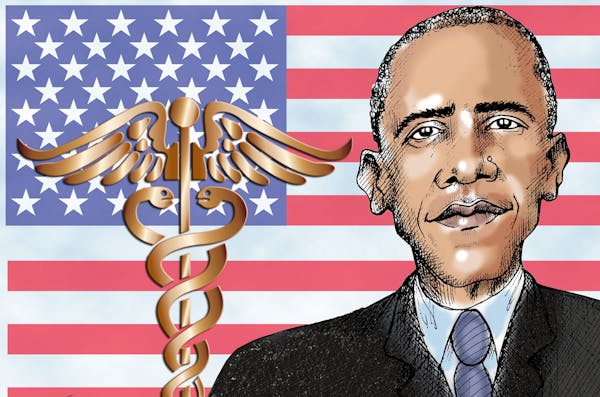Ever since health-care reform was passed in 2010, Bobby Jindal of Louisiana, Rick Perry of Texas, Scott Walker of Wisconsin and several other prominent Republican governors have vowed not to create the state insurance marketplaces, known as exchanges, the law requires.
Many of them say it's impossible to comply with the law because the Department of Health and Human Services hasn't given them enough information to move forward. Gov. Bob McDonnell of Virginia, writing on behalf of the Republican Governors Public Policy Committee, has sent President Barack Obama a list of 17 questions asking exactly what the exchanges will look like.
This strikes us as a bit of a smoke screen. In fact, it stretches the bounds of credulity as 17 states and the District of Columbia are working on their online exchanges and six more have pledged to work with HHS to build joint state-federal exchanges.
The exchanges will basically take the form of websites, designed to lead people through the process of selecting an insurance plan, based on price and coverage. In the process, users will be able to determine whether they qualify for subsidies or for Medicaid. (The existing Massachusetts Health Connector is a model for what most exchanges are expected to look like.) To design and plan such a website doesn't require knowing, as McDonnell demands, for example, how the federal government will manage pools of high-risk patients.
It's true that HHS delayed until this week issuing guidance on the benefits that insurance plans will be required to provide. It's also true that the department was a little slow to come out with its rules on enrollment periods, rate increases, catastrophic-care plans and the ways in which premiums can vary. It's eminently possible that these delays were attributable to politics (that is, a presidential election). Yet this information has arrived in plenty of time; the plain fact is that states didn't need it in order to decide whether to go ahead with an exchange.
HHS has been mostly eager to assist states in exchange- building and to be flexible about deadlines. The department has disbursed about $2 billion in grants to help states plan and design their websites. And it postponed by one month last week's deadline for states to declare their intention to create their own exchanges.
Here's something else that has been lost amid the questions: Any state that opts out of the effort will be stuck with a one-size-fits-all insurance exchange that, paradoxically, will be built by the federal government. In effect, the state will abdicate its traditional authority over health-insurance operations, and will be helpless to tailor its exchange to suit the desires of either local insurers or residents.
Such a state wouldn't save money either, as the federal government is footing the bill for creating exchanges and, under the law, once exchanges are in operation, they are to be self- supporting - through fees paid by insurance companies.
Perhaps prompted by this month's election results, a few encouraging signs of softening have appeared. In Florida, Gov. Rick Scott, who began his political career by opposing the Affordable Care Act, is now saying, "Let's have a conversation" about the law. Presumably, that means he will consider at least partnering with the federal government to create Florida's insurance exchange.
Last week, Gov. Terry Branstad of Iowa reluctantly said his state will work on building its own exchange. And Gov. John Kasich of Ohio, even while reiterating his opposition to the law, signaled that his state will help run its exchange.
Still, 14 governors and one state legislature say they are sticking with their declaration not to play ball. A dozen more states have made no decision.
At this point, a state that has done absolutely nothing to prepare probably has too little time to create its own exchange before October 2013, when HHS says it must be ready. Still, there is time enough to join in partnership with HHS; the deadline for deciding to do that is not until mid-February. In such partnerships, the federal government could provide the information technology, while the states would work with insurance companies on plans and provide guidance for residents.
HHS has made it clear that after federally operated exchanges are up and running, states may eventually take over operations. This seems like wasted effort. States have the information they need to move on insurance exchanges. Governors who care about fiscal responsibility, strong state government and the basic welfare of their residents would do well to get with the program.
The courage to follow the evidence on transgender care

Republicans wanted a crackdown on Israel's critics. Columbia obliged.


